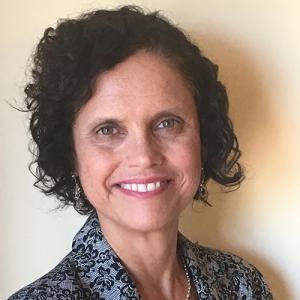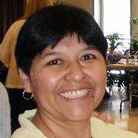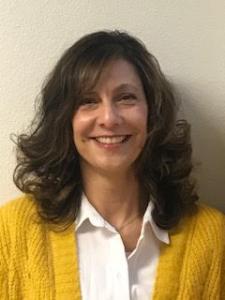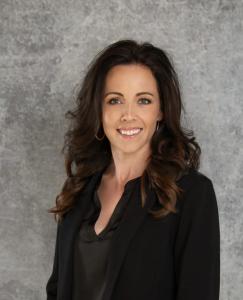Dual Language / Bilingual Education Certificate & Specialization
This certificate/specialization prepares teachers and other education professionals to develop students’ competencies in bilingualism, biliteracy, and multiculturalism. Builds expertise for effective instruction, leadership, and advocacy in dual language and bilingual settings.
Complete your program online!
credits required
Program Details
Overview
Where this program can take you:
- Become a certified dual language teacher and/or instructional leader
- Better serve the needs of emergent bilingual learners within any classroom context
- Use courses to finish the Master of Science in Education: Curriculum and Instruction program
To start, you need:
- A bachelor’s degree
- A valid teaching license (preferred)
Finishing will take:
- 1 year or less
- 15 credits
Begin your Dual Language/Bilingual Education Certificate/Specialization program:
- Fall term
Where you will take classes:
- Asynchronous online
What you will learn:
This certificate/specialization prepares teachers and other education professionals to develop students’ competencies in bilingualism, biliteracy, and multiculturalism. Builds expertise for effective instruction, leadership, and advocacy in dual language and bilingual settings.
Learning outcomes:
- Prepare teachers and other education professionals to apply theories of first and second language acquisition to their practice, and to use theoretical principles related to the role of culture and identity to foster an inclusive learning environment in dual language and bilingual settings.
- Prepare teachers and other education professionals to use evidence-based practices and strategies related to planning/developing/designing, implementing, and managing/assessing instruction in dual language and bilingual settings.
- Prepare teachers and other education professionals to act as a resource and advocate for multilingualism, and to collaborate with students, their families, and the community in order to meet the needs of multilingual students.
Application Requirements
Program Start Dates:
You may apply to start the program in the fall, winter, spring, or summer terms.
Application Deadlines:
- Fall Term: September 1st
- Winter Term: December 10th
- Spring Term: March 10th
- Summer Term: June 1st
Detailed application requirements:
Application materials required for WOU Graduate admission:
- Application Fee $60
- Transcripts
- You can upload an unofficial copy of your transcript to complete your application for admission. Save as a PDF with your first and last name in time from all previous colleges. We will require an official transcript from the Colleges or Universities you have attended for formal admission.
- Transcripts are used as Evidence of completion of a four-year baccalaureate degree (or international equivalent) from a regionally accredited institution as defined by the American Association of Collegiate Registrars, with a cumulative B average (equivalent 3.00 on a U.S. 4.00 grading scale) on the most recent baccalaureate degree. Applicants who hold a master’s degree will have the 3.0 GPA requirement waived. Students with less than 3.0 can also provide passing GRE scores to be fully admitted.
Process: Applications will be reviewed once all application materials have been submitted. Please refer to the Application Checklist in your Graduate Application Portal to confirm the status of your submitted materials. The Graduate Application Portal will also provide additional details about the checklist items for further clarification. You will be notified via email regarding changes in the status of your application or if you are missing any application components.
After meeting university requirements, applicants must meet in person with an advisor to complete and sign a Dual Language/Bilingual Education Certificate/Specialization Contract.
Curriculum
Curriculum overview:
Each class is aligned to TSPC competencies in dual language and this alignment is reflected in course syllabi.
Dual Language/Bilingual Education program contract:
Once admitted to Dual Language/Bilingual Certificate/Specialization Program, you will work with an advisor to plan the courses you will take and how you will complete the academic requirements of the program. By filing this Certificate Contract (PDF form), you have a road map for completing your certificate and clarity on what to expect.
*Students completing an endorsement, certificate, or specialization only are not eligible for federal financial aid.
Core Courses
- ED 631 Classroom Strategies for Biliteracy Development Credits: 3
- ED 641 Theories of Bilingualism Credits: 3
- ED 644 Bilingualism in Socio-cultural Contexts Credits: 3
- ED 645 Instruction and Assessment in Dual Language/Bilingual Settings Credits: 3
- ED 647 Critical Inquiry and Reflective Practice for Dual Language/Bilingual Educators Credits: 3
Course Descriptions
ED 631: Foundations of Biliteracy (3 credits)
This course explores the relationship between first and second language literacy and between oral and written language skills. The course also examines ESOL and biliteracy teaching strategies for differentiated proficiency levels, as well as materials, classroom organizational structures, and assessment tools. Projects encourage participants to become reflective practitioners as they analyze and critique their own beliefs and teaching practices, and plan their professional growth.
ED 641: Theories of Bilingualism (3 credits)
This course focuses on theories of language acquisition and their application to the classroom. It also explores topics such as language ideology, learners’ linguistic capital, translanguaging, contrastive analysis, language transfer, and metalinguistic strategies. Participants engage in linguistic analysis and consider classroom practices that maximize dual language learning, development, and use. Projects encourage teachers to become reflective language learners and practitioners.
ED 644 Bilingualism in Social Contexts (3 credits)
This course examines the concept of culture and its manifestation in schools and communities, with an emphasis on dual language/bilingual classrooms in the U.S. Informed by up-to-date theory and research, participants examine socio-cultural and historical forces that impact the educational process. Strategies that capitalize on learning and using cultural and community resources in dual language/ bilingual classrooms are emphasized. Partnerships with families, schools, and communities are an important focus of the course. Projects encourage participants to become reflective practitioners.
ED 645 Instruction and Assessment in Dual Language/Bilingual Settings (3 credits)
This course focuses on curriculum development, assessment practices, and design of materials for dual language and bilingual classrooms. Informed by current research and theory, participants plan, develop and implement instructional strategies and assessment tools that foster academic and linguistic development. Projects encourage participants to become reflective practitioners, as they critique and analyze their teaching practice in dual language/bilingual settings, and plan their professional growth.
ED 647 Critical Inquiry and Reflective Practice for Dual Language/Bilingual Educators (3 credits)
This course focuses on examining the policies, instructional practices, and the curriculum to transform them as appropriate. It also lays the foundations to develop an advocacy stand and to examine their leadership skills. Participants also conduct research and are encouraged to become better reflective practitioners.
Faculty
 MARIA DANTAS-WHITNEY
MARIA DANTAS-WHITNEY
Professor
503-838-8636 | dantasm@wou.edu | RWEC 223
 CARMEN CACEDA
CARMEN CACEDA
Professor
503-838-8409 | cacedac@wou.edu | RWEC 222
 JESSICA DOUGHERTY
JESSICA DOUGHERTY
Assistant Professor
503-838-8929 | doughertyj@wou.edu | RWEC 221
 JOSHUA SCHULZE
JOSHUA SCHULZE
Professor/Associate Professor
503-838-9285 | schulzejm@wou.edu | RWEC 221
 KRISTEN L. PRATT
KRISTEN L. PRATT
Associate Professor
503-838-9221 | prattk@wou.edu | RICHARD WOODCOCK EDUCATION
Where this program can take you:
- Become a certified dual language teacher and/or instructional leader
- Better serve the needs of emergent bilingual learners within any classroom context
- Use courses to finish the Master of Science in Education: Curriculum and Instruction program
To start, you need:
- A bachelor’s degree
- A valid teaching license (preferred)
Finishing will take:
- 1 year or less
- 15 credits
Begin your Dual Language/Bilingual Education Certificate/Specialization program:
- Fall term
Where you will take classes:
- Asynchronous online
What you will learn:
This certificate/specialization prepares teachers and other education professionals to develop students’ competencies in bilingualism, biliteracy, and multiculturalism. Builds expertise for effective instruction, leadership, and advocacy in dual language and bilingual settings.
Learning outcomes:
- Prepare teachers and other education professionals to apply theories of first and second language acquisition to their practice, and to use theoretical principles related to the role of culture and identity to foster an inclusive learning environment in dual language and bilingual settings.
- Prepare teachers and other education professionals to use evidence-based practices and strategies related to planning/developing/designing, implementing, and managing/assessing instruction in dual language and bilingual settings.
- Prepare teachers and other education professionals to act as a resource and advocate for multilingualism, and to collaborate with students, their families, and the community in order to meet the needs of multilingual students.
Program Start Dates:
You may apply to start the program in the fall, winter, spring, or summer terms.
Application Deadlines:
- Fall Term: September 1st
- Winter Term: December 10th
- Spring Term: March 10th
- Summer Term: June 1st
Detailed application requirements:
Application materials required for WOU Graduate admission:
- Application Fee $60
- Transcripts
- You can upload an unofficial copy of your transcript to complete your application for admission. Save as a PDF with your first and last name in time from all previous colleges. We will require an official transcript from the Colleges or Universities you have attended for formal admission.
- Transcripts are used as Evidence of completion of a four-year baccalaureate degree (or international equivalent) from a regionally accredited institution as defined by the American Association of Collegiate Registrars, with a cumulative B average (equivalent 3.00 on a U.S. 4.00 grading scale) on the most recent baccalaureate degree. Applicants who hold a master’s degree will have the 3.0 GPA requirement waived. Students with less than 3.0 can also provide passing GRE scores to be fully admitted.
Process: Applications will be reviewed once all application materials have been submitted. Please refer to the Application Checklist in your Graduate Application Portal to confirm the status of your submitted materials. The Graduate Application Portal will also provide additional details about the checklist items for further clarification. You will be notified via email regarding changes in the status of your application or if you are missing any application components.
After meeting university requirements, applicants must meet in person with an advisor to complete and sign a Dual Language/Bilingual Education Certificate/Specialization Contract.
Curriculum overview:
Each class is aligned to TSPC competencies in dual language and this alignment is reflected in course syllabi.
Dual Language/Bilingual Education program contract:
Once admitted to Dual Language/Bilingual Certificate/Specialization Program, you will work with an advisor to plan the courses you will take and how you will complete the academic requirements of the program. By filing this Certificate Contract (PDF form), you have a road map for completing your certificate and clarity on what to expect.
*Students completing an endorsement, certificate, or specialization only are not eligible for federal financial aid.
Core Courses
- ED 631 Classroom Strategies for Biliteracy Development Credits: 3
- ED 641 Theories of Bilingualism Credits: 3
- ED 644 Bilingualism in Socio-cultural Contexts Credits: 3
- ED 645 Instruction and Assessment in Dual Language/Bilingual Settings Credits: 3
- ED 647 Critical Inquiry and Reflective Practice for Dual Language/Bilingual Educators Credits: 3
Course Descriptions
ED 631: Foundations of Biliteracy (3 credits)
This course explores the relationship between first and second language literacy and between oral and written language skills. The course also examines ESOL and biliteracy teaching strategies for differentiated proficiency levels, as well as materials, classroom organizational structures, and assessment tools. Projects encourage participants to become reflective practitioners as they analyze and critique their own beliefs and teaching practices, and plan their professional growth.
ED 641: Theories of Bilingualism (3 credits)
This course focuses on theories of language acquisition and their application to the classroom. It also explores topics such as language ideology, learners’ linguistic capital, translanguaging, contrastive analysis, language transfer, and metalinguistic strategies. Participants engage in linguistic analysis and consider classroom practices that maximize dual language learning, development, and use. Projects encourage teachers to become reflective language learners and practitioners.
ED 644 Bilingualism in Social Contexts (3 credits)
This course examines the concept of culture and its manifestation in schools and communities, with an emphasis on dual language/bilingual classrooms in the U.S. Informed by up-to-date theory and research, participants examine socio-cultural and historical forces that impact the educational process. Strategies that capitalize on learning and using cultural and community resources in dual language/ bilingual classrooms are emphasized. Partnerships with families, schools, and communities are an important focus of the course. Projects encourage participants to become reflective practitioners.
ED 645 Instruction and Assessment in Dual Language/Bilingual Settings (3 credits)
This course focuses on curriculum development, assessment practices, and design of materials for dual language and bilingual classrooms. Informed by current research and theory, participants plan, develop and implement instructional strategies and assessment tools that foster academic and linguistic development. Projects encourage participants to become reflective practitioners, as they critique and analyze their teaching practice in dual language/bilingual settings, and plan their professional growth.
ED 647 Critical Inquiry and Reflective Practice for Dual Language/Bilingual Educators (3 credits)
This course focuses on examining the policies, instructional practices, and the curriculum to transform them as appropriate. It also lays the foundations to develop an advocacy stand and to examine their leadership skills. Participants also conduct research and are encouraged to become better reflective practitioners.
 MARIA DANTAS-WHITNEY
MARIA DANTAS-WHITNEY
Professor
503-838-8636 | dantasm@wou.edu | RWEC 223
 CARMEN CACEDA
CARMEN CACEDA
Professor
503-838-8409 | cacedac@wou.edu | RWEC 222
 JESSICA DOUGHERTY
JESSICA DOUGHERTY
Assistant Professor
503-838-8929 | doughertyj@wou.edu | RWEC 221
 JOSHUA SCHULZE
JOSHUA SCHULZE
Professor/Associate Professor
503-838-9285 | schulzejm@wou.edu | RWEC 221
 KRISTEN L. PRATT
KRISTEN L. PRATT
Associate Professor
503-838-9221 | prattk@wou.edu | RICHARD WOODCOCK EDUCATION

